Additional Reporting by Lily McGuire-Eggleston ’20.
On Oct. 3, students and faculty were joined by members from the Baltimore community to listen to a panel discussion entitled “The Border Crisis.” The three panel members consisted of Michelle Mendez of the Catholic Legal Immigration Network; Dr. Dario Euraque, a professor and historian from Trinity College; and Maureen Sweeney, director of the Immigration Clinic and professor at the University of Maryland School of Law. Hosted in McGuire Hall, the event was co-sponsored by Latin American and Latino Studies. Each member of the panel spoke for approximately 20 minutes, each touching on the most prominent issues surrounding the border crisis.
Euraque detailed the complex issue’s history, particularly surrounding Honduras, his country of birth. He has worked on 65 asylum cases since 1991. He explained how in the last 15 years, the presence of gangs and drug trafficking through Central America has caused asylum law in the United States to be rethought.
Euraque serves as an expert witness that offers information and documentation about Honduras and reaffirms the conditions that people who are seeking asylum have fled from. He said that he enjoys his work because he thinks that it speaks to the consciousness people have toward suffering. He believes that, “When we see suffering, we should attend to it.”
Mendez spoke next. While speaking from a lawyer’s perspective, she also spoke as an immigrant herself. She works with an organization called the National Reunification for Formerly Separated Families, a program that aids immigrants through the documentation process. Mendez spoke of the program’s partnership with Lyft, which assists families in attending their legal appointments and anything else they might need to help their asylum processes.
Mendez warned of the language used to describe immigrants and the border crisis.She added that once one group of people is dehumanized, it becomes much easier to dehumanize many groups of people. She also detailed the collaboration among historians, anthropologists, sociologists, psychologists, and lawyers that generates the applications put forth for asylum.
Sweeney began by detailing her role as a professor of immigration law at the University of Maryland. She then went on to explain where immigration court falls under the branches of the United States government. Immigration courts do not fall under the judicial branch. Instead, it is the responsibility of the Department of Justice, which falls within the executive branch. Sweeney explained how the attorney general has been rewriting the asylum laws, particularly eliminating domestic violence and gang violence as grounds for asylum.
Although she described her job as daunting, Sweeney shared that this year her clinic has worked on five cases, and they have won all five. Each victory is special and so important to her field, she explained. She also described her work as her Christian responsibility. Sweeney recounted that her greatest experiences of God and God’s love is shown through her clients’ experiences, while she also expressed the great honor it gives her to accompany people through their darkest places.
Sweeney concluded the lecture with advice for the Loyola and Baltimore communities in what can be done to help those affected by the border crisis. She encouraged people to continue having intelligent conversations and to push back on the narrative being broadcasted. She spoke of the Esperanza Center and a program called Sanctuary Streets, both located in Baltimore. World Relief, also in Baltimore, needs volunteers knowledgeable about Spanish to translate and write the stories of immigrants because someone needs to tell the stories. Sweeney also encouraged advocacy on the political level, reaching out to elected officials, and even calling the White House. “Anti-immigrant voices are strong and loud, and we don’t hear enough from pro-immigrant people,” Sweeney said. Lastly, she echoed both her colleagues and fellow panel members by saying, “When you’re in a position to help someone, do it.”
Feature Image: Courtesy of Brown ’20.







































































































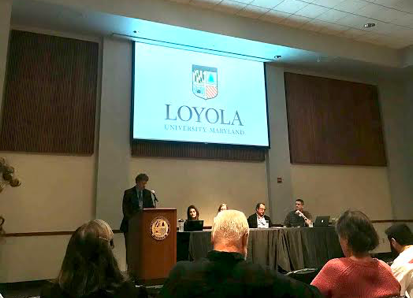
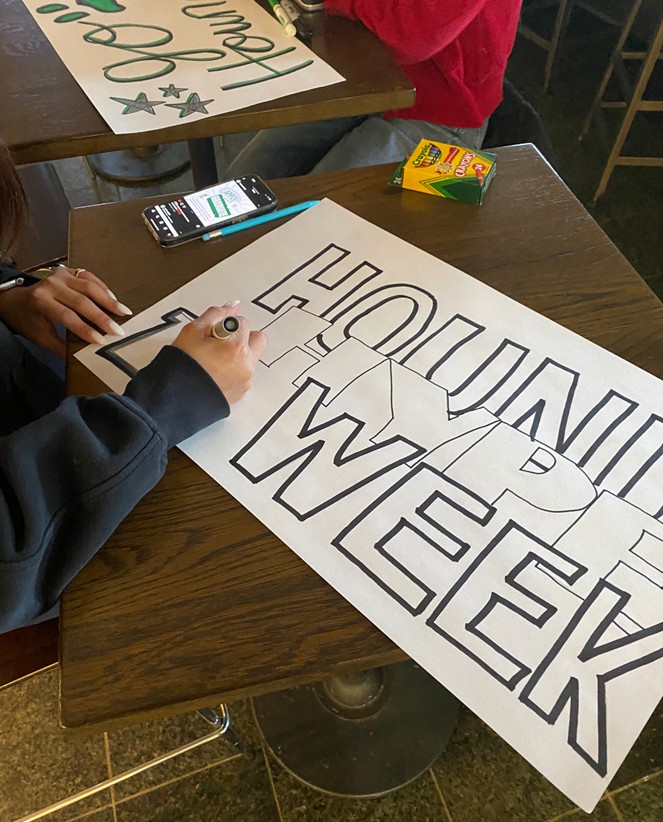
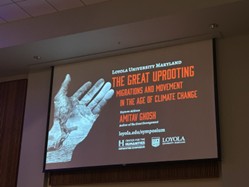
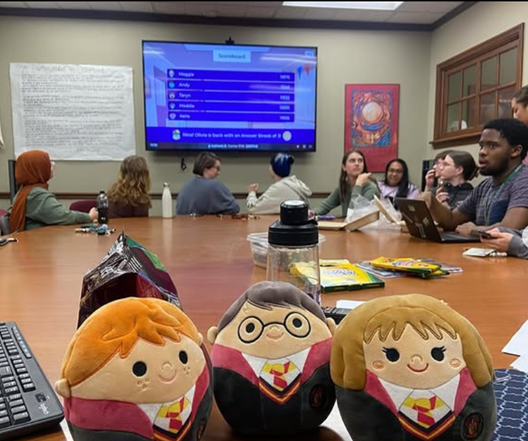
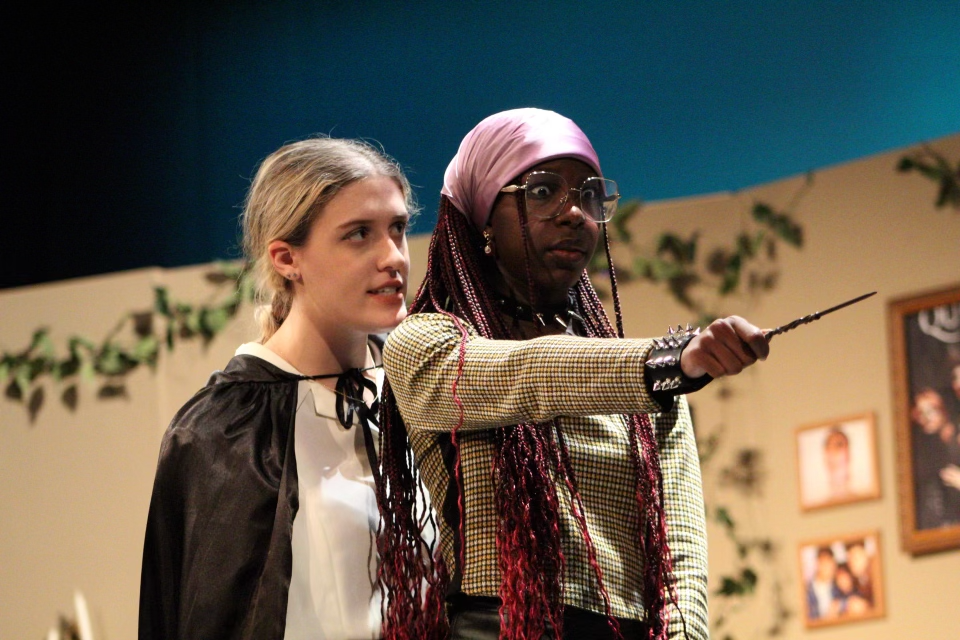
Anonymous • Nov 14, 2019 at 2:44 pm
5
Anonymous • Nov 14, 2019 at 1:23 pm
4.5